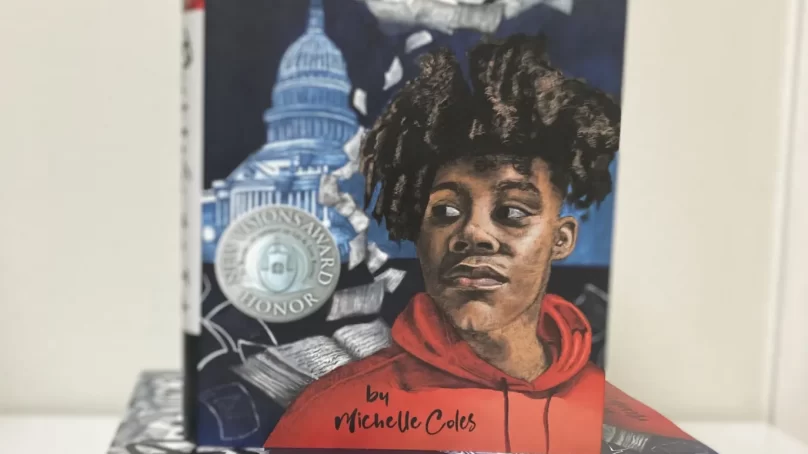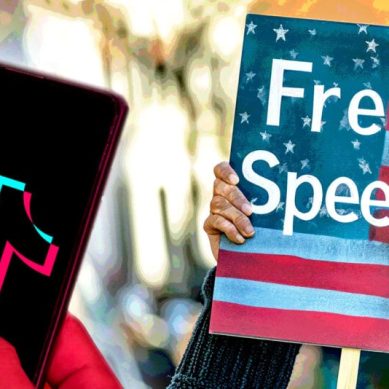
I recently learned the heart-breaking news about a challenge brought against my book “Black Was the Ink” – a young adult historical fiction novel about the Reconstruction Era. The parent felt the book violated the state’s so-called “anti-critical race theory” law. As a result, all copies of it were subsequently removed from classrooms.
While this is my first time navigating such a challenge, it will likely not be the last. Without commenting on the constitutionality of these laws, most prohibit teaching that white people are inherently racist and should feel guilty about the past.
“Black Was the Ink” does just the opposite by excavating the memories of overlooked white Americans who worked with African Americans during the Reconstruction Era to protect quintessential American values, like equality under the law and freedom and justice for all, which is something all Americans can all feel proud about.
“Black Was the Ink” is told through the eyes of a modern African American teen named Malcolm who embarks on a miraculous journey to Reconstruction-era America with the help of a ghostly ancestor. While in the past, Malcolm witnesses the historic contributions of Black legislators, who worked alongside white allies to bring justice, education, and land ownership to America’s newest citizens, the 4.4 million African Americans emancipated from slavery at the end of the Civil War.
“Black Was the Ink” was inspired by the horrific Mother Emanuel Massacre, committed by an avowed teenage white supremacist in Charleston, South Carolina, on July 17, 2015, in a harrowing echo of the racial violence that represents the worst of America’s past. But it was fuelled by my hope for a brighter American future where racial harmony finally triumphs over racial division.
The Reconstruction Era is the period in American history that immediately followed the Civil War when the US Constitution was amended through the ratification of the 13th, 14th and 15th Amendments to outlaw slavery and grant African Americans, and others born or naturalised in the United States, full citizenship rights for the first time – an important step toward America becoming a more perfect union.
While this is my first time navigating such a challenge, it will likely not be the last.
During the Reconstruction Era, a multiracial coalition of elected representatives passed laws that prohibited racial discrimination in most public places a full century before the modern civil rights movement, expanded educational opportunities for all Americans by establishing public schools in the South, and empowered the federal government to address the epidemic of racial violence led by white supremacist domestic terrorist groups like the Ku Klux Klan, among other great accomplishments.
Sadly, the progress made during the Reconstruction Era did not last. It was quickly followed by the Jim Crow Era, when numerous states passed laws that stripped African Americans of their newfound rights and forced many into conditions resembling slavery.
Further, the achievements of the Reconstruction Era were largely erased from public memory.
For far too long, the importance of the Reconstruction Era – and its demise – has been left out or deemphasised in schools, which is likely why teachers and students alike have gravitated to “Black Was the Ink” as a helpful teaching tool. “Black Was the Ink” uses thoroughly researched historical facts to introduce students to the Reconstruction Era, often incorporating the historical figure’s own words as evidenced by the Library of Congress’s catalogue of Congressional records, as well as contemporaneous letters, speeches and news articles.
In addition to the sixteen Black men who served in the US Congress between 1870 and 1877, including two US Senators, “Black Was the Ink” highlights several white American patriots, including: US Senator Charles Sumner (Republican-Massachusetts 1851-74), who fought for the passage of the Civil Rights Act of 1875, a precursor to the modern Civil Rights Act of 1964; President Ulysses S. Grant, who signed into law numerous pieces of legislation that protected the civil rights of the millions of African Americans emancipated from slavery; and Attorney General Amos Akerman, the first Attorney General to lead the US Department of Justice as well as a former Confederate soldier, who nevertheless marshalled the full weight of the federal government to fight the wave of white supremacist domestic terrorism that swept the South during the Reconstruction Era.
The present-day portion of the book, which takes place during the summer of 2015, centers around the plight of Malcolm, a fictional African American teen who experiences personal growth as a result of what he learns about the Reconstruction Era, while also dealing with problems that are common to many Black and brown youth. His journey is informed by my family’s personal experiences as African Americans who have resided in Louisiana for more than 200 years, as well as larger patterns I observed as a former career trial attorney and policy counsel in the Civil Rights Division of the US Department of Justice across multiple presidential administrations.
While Malcolm’s perspective may be different from the parent who objected to my book, that is the beauty of books – they expose you to perspectives and experiences that are different from your own, thereby helping broaden one’s worldview.
Furthermore, even the present-day portion of the story depicts a white and a Black teen who overcome their initial negative impressions and work together to achieve a just outcome, thus demonstrating that people are not defined by their race but instead by their choices.
‘Black Was the Ink’ is an attempt to bring Americans together through an honest telling of history to help us understand and navigate some of the thorniest challenges that continue to plague our nation today.
For those considering whether to ban “Black Was the Ink” from your schools, I respectfully request that you read it with an open mind instead of harping on a sentence or word from a fictional character devoid of context and without knowing if the objected-to statement is part of the character’s arc.
If you read the book in its entirety, I believe that you will see that, more than anything, “Black Was the Ink” is an attempt to bring Americans together through an honest telling of history to help us understand and navigate some of the thorniest challenges that continue to plague our nation today. Only by facing our past and learning from it, not by attempting to ignore or bury it, will America truly become a nation that is indivisible with liberty and justice for all.
- An Afro News report / By Michelle Coles, African American is a novelist and experienced civil rights attorney. As a 9th generation Louisianan, she is highly attuned to the struggles that African Americans have faced in overcoming the legacy of slavery and the periods of government-sanctioned discrimination that followed.











